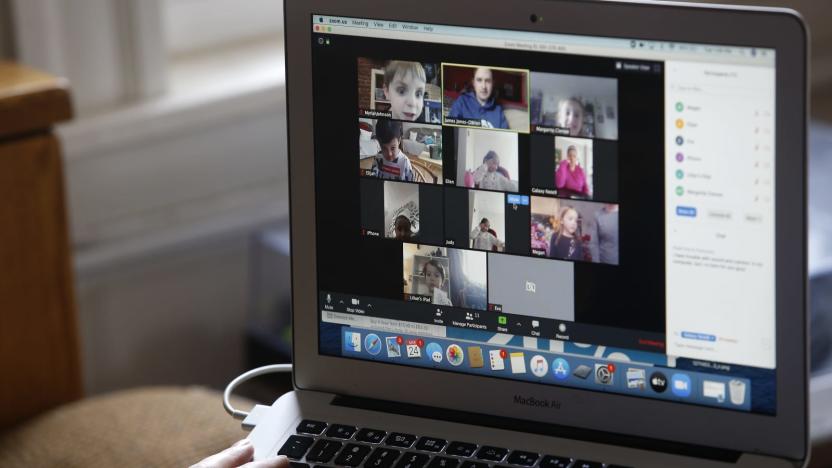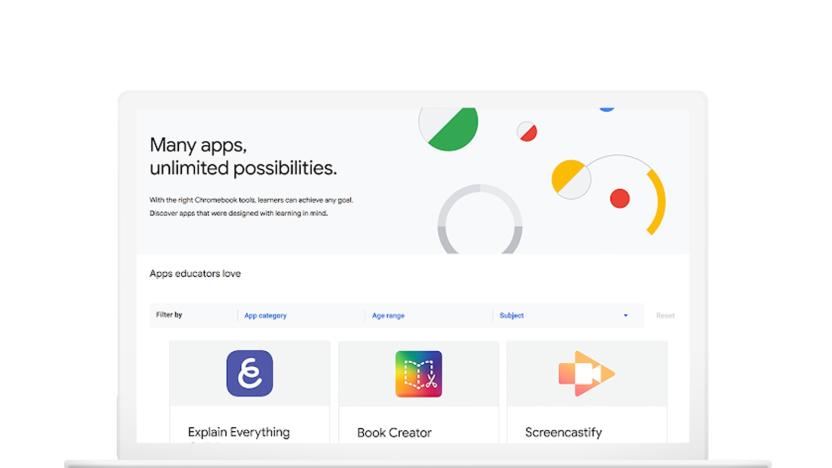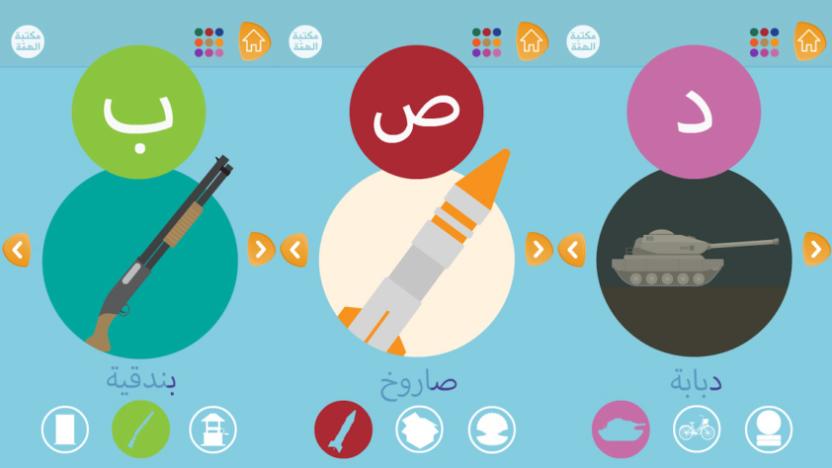teaching
Latest

Zoom's new Focus mode hides people who might distract you
Zoom has unveiled a new feature called Focus mode designed to keep students from distracting each in virtual classrooms.

School districts ban Zoom over security concerns
Concerns about Zoom's security are having a real impact on its use in remote education. Some US school districts, including large ones like New York City and Nevada's Clark County, have banned or disabled Zoom over security and privacy worries. Others, such as Washington state's Edmonds School District and Utah's Alpine School District, are rethinking their policies on Zoom use. And unsurprisingly, both are either switching apps or considering it, such as NYC teachers moving to Microsoft Teams.

Google's Area 120 made a free, drag-and-drop 3D game builder
Google's in-house incubator, Area 120, has produced things like an app that teaches coding and tools to boost literacy. Now it wants to help gamers create their own 3D games, no experience necessary. Today, it launched Game Builder, a free platform that aims to "make building a game feel like playing a game."

Chromebook App Hub gives teachers ideas for class activities
Many schools use Chromebooks, but they might not always know how to make the most of those systems in the classroom -- and Google knows it. The firm is launching a Chromebook App Hub that will both help teachers find activity ideas and connect institutions with developers that might fit their needs. Educators can both create and look for "idea sparks" and apps based on the age range, subject, idea category and even specific learning goals.

Japan trials AI and robots to boost English skills in schools
Under pressure to improve English skills among both teachers and students, Japan's Ministry of Education is turning to robots, according to NHK. Beginning in April, the ministry will launch a trial that will put English-speaking AI robots in around 500 schools throughout the country. The ministry will also reportedly make study apps and online conversation sessions with native English speakers available to students, and those efforts along with the robot initiative are all aimed at improving students' English communication skills.

Tennis legend Andre Agassi is building tech to help with dyslexia
Andre Agassi, the legendary American tennis player, made an appearance at SXSW 2018 to announce a partnership with Square Panda, a startup that makes educational apps for kids. Through his Early Childhood Neuroscience Foundation, Agassi and Square Panda are creating Readvolution, an initiative that aims to develop the "first-ever" free dyslexia-assessment game. To make this happen, the plan is to get help from scientists in a number of universities in the US, such as the University of California at San Francisco (UCSF) and the Weill Institute of for Neurosciences.

UK education expert dismisses 'Minecraft' as a 'gimmick'
After offering teachers early access to Minecraft: Education Edition this summer, Microsoft's classroom-friendly version of the immensely popular sandbox game was formally launched at the beginning of November. Not everyone is keen on Minecraft being used as a teaching tool, though, and ahead of Microsoft's UK launch event tomorrow, behavior expert for the government's Department for Education Tom Bennett has voiced his skepticism to The Times. "I am not a fan of Minecraft in lessons. This smacks to me of another gimmick which will get in the way of children actually learning," Bennett said.

Museum uses 'Minecraft' to visualise the Great Fire of London
Minecraft and its 'build what you want' mentality has made it an effective tool in the classroom. The game, developed by Mojang and owned by Microsoft, has been used to teach art, geology and now history, thanks to a new project by the Museum of London. It's called "Great Fire 1666" and will portray the historic blaze that swept across the city 350 years ago.

ISIS releases learning app to teach kids about tanks and rockets
A new Android app from the tech-savvy extremist group ISIS hopes to help out busy ISIS parents by teaching their kids to read and militarizing them at the same time. The app, called Huroof, was released via the Islamic State's Telegram channel and includes games for learning the letters of the Arabic alphabet with militaristic vocabulary words like "tank" and "rocket."

Lego's WeDo 2.0 gives kids a crash-course in robotics
You may not have been able to play with Lego in school, but your kids can. Lego Education has revealed the WeDo 2.0 robotics kit aimed at elementary school students, over eight years after launching the original WeDo. As before, it's designed to teach kids the basics of robotics, thanks to the Mindstorm-like sets. The new kit also replaces the old USB cables with a Bluetooth LE hub that connects to the motors and tilt sensors. The whole thing is driven by a tablet-based drag-and-drop interface that helps kids code basic robotics apps.

Apple is making it easier for schools to put iPads in classrooms
Apple's dreams of putting iPads in classrooms have run into a number of roadblocks, but one of the biggest is simply the amount of work involved -- each slate needs its own account, making it a nightmare if you want to outfit an entire school. That won't be a problem for much longer, however. Both MacRumors and 9to5Mac have discovered that Apple is ditching the requirement for individual IDs on school-supplied iPads as of this fall. Staff will just have to decide which devices get apps or books, letting teachers focus on the actual education instead of getting things running. They'll still have plenty of control, so kids can't load up on games and other distractions unless they get the green light. It's too soon to know if this will lead to more kids taking home tablets instead of textbooks, but there will at least be fewer barriers to making that happen. [Image credit: Jonathan Nackstrand/AFP/Getty Images]

iTunes U on iPad will let teachers create courses and take your questions
Right now, iTunes U on the iPad isn't a complete educational tool. You can read textbooks, but not much else -- you still need to use old-fashioned email to ask the teacher a question, for example. It's going to be much more useful on July 8th, when Apple releases a major overhaul to the app. The new iTunes U lets teachers create and manage courses entirely from the iPad, plucking source material from other apps and even the device's camera. Students, meanwhile, get some much-needed interaction -- you can now ask questions from the app, or join in class discussions.

Yes, there are real life lessons to be found in World of Warcraft
If you read Lifehacker, you probably read it for information on getting stuff done in the real world -- which is why it's surprising to see an article about World of Warcraft headlining. But the article makes a good point: there are real life lessons you can learn in virtual life. We've written before about how WoW can be a teaching tool in schools (on more than one occasion), but it can help teach you, too. No, you won't learn calculus by slaying virtual dragons and playing WoW instead of washing the dishes won't get your chores done, but paying attention to the game can teach you some useful life lessons. So just what lessons can you learn? We won't recount the whole post, but definitely appreciate this point: even things you like can be a grind. We may enjoy WoW, but dailies are only fun for so long before they become tedious -- and the same can hold true for real life, too. The things that we love, when turned into do-every-day job-like tedium can be just as un-fun as things we don't even like. But because we like getting paychecks (or gold or valor or reputation), we persevere. For more, read the post on Lifehacker.

Chaos Theory: How The Secret World makes you learn
Maybe it's my age or maybe it's just a little bit of laziness about me, but I'm finding myself a little peeved whenever someone or something wants to make me learn a new system. I mean, I'll be the one constantly reading Wikipedia to all hours of the night because I like soaking up info, but if a game asks me to go through a two-minute tutorial, I'm like, "Forget that!" and upturn my computer desk while I go to the other room to calm down. It's not that I don't like learning -- I end up really enjoying myself when I do, in fact -- but that the energy and attention required to absorb a new lesson can often be a tad daunting. This is what drives me back into familiar gaming arms again and again, and why I'm more than a little apprehensive about all of the sandbox tools that will be coming to MMOs near us. That's why I have to hand it to The Secret World -- here's an MMO that pushed me out of my comfort bubble and made me learn, sometimes kicking and screaming, and sometimes with a giddy and joyful heart. This is an MMO that isn't content to spoon-feed you the same mush you've been downing for years; it's one that operates under a practical mission statement of teaching through gameplay.

Udacity launches Open Education Alliance to help modernize university curriculums
Udacity's first partnership with an institution of higher learning might not have turned out as well as it hoped, but a setback at San Jose State University won't cause the online learning portal to call it quits on college campuses. Quite the contrary, in fact. Today, Udacity announced the creation of the Open Education Alliance to "bridge the gap between the skills employers need and what traditional universities teach." The alliance is comprised of both Silicon Valley heavyweights like Google, AT&T and NVIDIA and educators including Georgia Tech and Khan Academy. The OEA's goal is to enlist the help of both companies and educators in building a new curriculum to help students learn what they need to choose and succeed in a modern career. Here at TechCrunch Disrupt SF 2013, Udacity CEO Sebastian Thrun and California Lt. Governor Gavin Newsom discussed the need for a shift in our educational system, and consequently the OEA. "It's important to be creative about this," said Thrun, "we need to move away from an 'industry of drones' by enabling students to learn at their own speed." Naturally, accomplishing this task requires a combination of Udacity's online learning tools to give folks on-demand access to learning materials they need and a physical classroom environment to keep students on task. According to Newsom, "It's not mass education anymore, it's personalized."

The Summoner's Guidebook: Divorcing skill from teaching skills in League of Legends
League of Legends is a game where skill takes many forms. Knowledge is a skill, as is mechanical execution, adaptability, decision-making, and prediction. In LoL, the emphasis is mostly on decision-making and knowledge. This doesn't mean that the other skills aren't necessary to become a great player, but being a good player mostly requires those skills. I've said it once and I'll say it again: I'm not a great player. If I were, I'd probably be trying to get on a pro team (or I'd already be on one). Even "good" is debatable. I am kind of emotional when I play, and it messes me up. I tend to surrender vote early, which sometimes brings my team down. I am not a team player. I tend to rely on my superior mechanics. Even my mechanics are bad compared to great players. I tend to think of myself as OK at best and that most people are just awful. However, I also think I'm pretty good at teaching people how to play. LoL has a lot of games-within-a-game to play, and I'm not too bad at explaining how those things work over time. I'd like to think I'm good at giving commentary (both positive and negative) to a player trying to learn. I could be a coach, and I sort of am -- I get to coach all of you guys, after all.

Silent Light helps teachers control the noise in their classrooms
Silent Light - Classroom Timer and Decibel Meter is a new app from the folks at Top Storey Apps. It was written by a pair of teachers for teachers to use in the classroom or homeschool environment. The premise behind the app is simple -- it uses the microphone on the iOS device to detect background noise and rewards children when they are quiet for a set amount of time. The Silent Light app lets you select a target noise level that is compatible with a range of activities. When it is test-taking time, you can set the app to the lowest "hear a pin-drop" level of quietness. If you are holding small group discussions, you can raise the noise level to allow quiet talking, but not loud outbursts. The app rewards children with points for being quiet and you can configure the time, from 1 to 15 minutes, it takes for a child to earn a point. The app can be used on an iPad, iPhone or iPod touch that is placed on a student's desk. If you are using one device per classroom, you can also output the display to an HDTV using an Apple TV or a compatible digital AV adapter. Silent Light uses a very familiar traffic light graphic to visually represent the noise level in the clasroom. Red is too loud, orange is getting loud and green is within the level of quiet needed for an activity. A timing meter counts off the minutes and changes color to give kids real-time, feedback about their level of noise. A rewards counter keeps track of the points that awarded for times of quiet activity. When you are done with your quiet time, you can start over by changing the activity title and resetting both the timer and the rewards counter. I tested Silent Light in my own home and found that the app works exactly as described. It picked up ambient noise and reported it as loud based on the noise level that I selected. When I selected the ultra-quiet pindrop level, even quiet whispering between two or three children triggered an orange warning light. When I turned the level up to group discussion, my children were allowed to talk, but not laugh or yell without the app warning them they needed to quiet down. Warnings are visual only -- the timing meter turns red and the traffic light turns orange or red. There is no alert or other audible cue that the noise level is too loud. (According to the developer, there is a xylophone ding that should chime when the noise gets too loud). The only audible in the app is a cash register noise that chimes when a new point is added to the coffer. This noise can be turned off by lowering the volume on the phone. Silent Light - Classroom Timer and Decibel Meter is an effective visual tool for classroom or homeschool teachers who want to reward children for their quietness during activities. The Silent Light app is available from the iOS App Store for US$3.99.

The Summoner's Guidebook: Getting friends to enjoy League of Legends
I find the mainstream success of League of Legends to be extremely baffling. If you break down the skills you need to be an effective player in the MOBA genre, they are daunting. The mechanical skill cap to be acceptable is unacceptably high, and the knowledge burden is enormous. Other MOBAs have dozens of characters and hundreds or thousands of matchups. League of Legends' character pool is so unbelievably large that even professionals cannot grasp the entirety of its design space. While I can't fathom how normal people find a game this hard fun, I can simply accept it. That makes it quite possible to get our friends and significant others hooked. However, because League is a hard game, it is probably best that we be careful when we try to teach our friends. It's pretty easy to scare them with the enormous difficulty in the game.

World of ClassCraft inspires kids to work hard in school
Would you have done better in high school physics if it had been gameified? In this BBC report, Mr. Young, a physics teacher in Quebec, Canada, explains that doing just that has made a difference in his own classroom. Mr. Young divides his students into groups of eight, and within each group students are offered the role of a warrior, priest, or mage. Each start out with a few base abilities, and can earn more through the accumulation and expenditure of experience points. How do you earn experience points? By turning in assignments on time, behaving yourself in class, and helping others with their homework. Each character also has hit points, just like in WoW, and you can lose hit points through poor classroom behavior or missing homework deadlines. If your hit points go to zero, you earn yourself a detention or some other sort of penalty. But your teammates can help you out, too. Warriors, with their large hit point pool, can soak damage, and priests can heal it back. Like this, teams are encouraged to work together and help each other learn the material. Mr. Young calls the whole system "World of ClassCraft" in honor of WoW, which it imitates.

Teacher's iPhone app scores tests, shares data quickly
Our colleagues at TechCrunch have an interesting story about Quick Key, an iPhone app that could be extremely helpful for teachers everywhere. Walter O. Duncan IV is a veteran teacher and the mind behind Quick Key, which is designed to score simple scantron tests (the old tests you complete by filling in circles with a pencil) with the iPhone's camera and a QR code. The video promoting the app is pretty slick, though those scantron sheets look way different than the tests I remember (with the tiny bubbles, about 300 or so to a page). The app is currently in beta as Duncan collects feedback from teachers who are testing it out. Duncan has raised almost US$100,000 for future development, and hopes that his company, Design by Educators, will deliver Quick Key to teachers all over the world. It's inspiring to see the iPhone improve upon older technology in such a significant way. These are powerful computers we're carrying around in our pockets, and it's always cool to see them put to important use.











